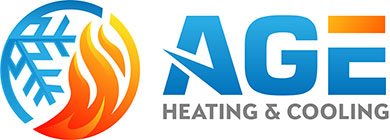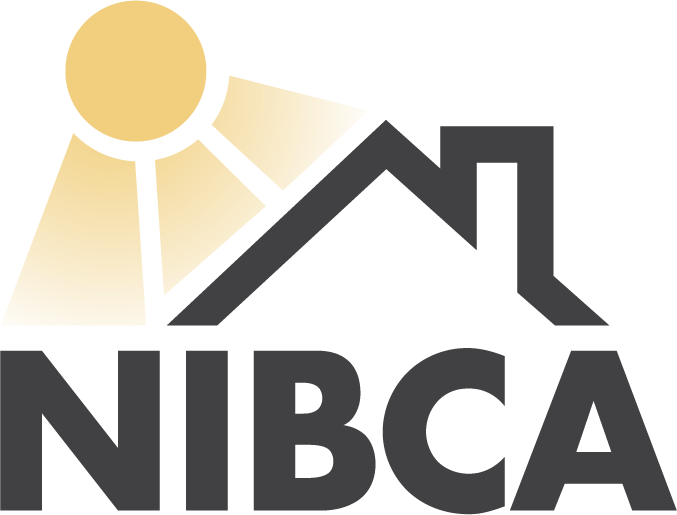
We can all benefit from saving a few bucks here and there. One of the easiest ways to do so is by making some energy-efficient changes around your home. Upgrading your HVAC equipment or installing a smart thermostat, for example, gives you more control over your heating and cooling system, resulting in a more energy-efficient home and lower monthly energy bills.
Continue below to read about 4 ways you can make energy-efficient home improvements.
1. Look for Smart Home Products Like a Smart Thermostat
If you still use an older thermostat and control it manually, consider taking a step toward the future by installing a smart, or Wi-Fi, thermostat – which comes with a number of features to assist with energy efficiency.
The feature homeowners appreciate the most is having the capability to adjust their smart thermostats from anywhere with their smartphone or other smart device. As an example, if you forget to use your thermostat before leaving for vacation, you can easily take out your smartphone and make the necessary adjustment.
Just like a programmable thermostat, a smart thermostat enables you to set up a schedule for your home’s temperature determined by the time of day and day of the week so you’re not cooling or heating an empty house. Smart thermostats also offer the ability to understand your temperature preferences over time and automatically make energy-efficient corrections. They even provide monthly energy reports that illustrate how much energy you are using and when so you can make adjustments to save money.
If you’re wondering how to get a free smart thermostat, check with your utility company to see if there are any discounts or free smart thermostats available to you.
2. Regularly Scheduled Tune-Ups for Your HVAC System
Unfortunately, many homeowners often forget to keep their heating and cooling systems maintained. While this may not seem like a huge deal, inadequate maintenance can lead to a number of issues, including inefficiency, breakdowns, and a shorter system lifespan.
With an HVAC maintenance service, a heating and cooling technician is going to inspect your HVAC system, clean important components, and identify minor problems before they produce bigger, more expensive repair issues. Maintenance keeps HVAC systems functioning at optimal condition, which means they use less energy to heat and cool your home. This could also lower your energy bills, increase the lifespan of HVAC equipment, and contribute to fewer repairs.
We suggest two HVAC tune ups annually – once during the spring before summer and again in the fall before the arrival of winter weather.
3. Getting rid of Your Worn-Down, Inefficient HVAC Equipment
Unfortunately, like all appliances, HVAC systems have a shelf life and ultimately need to be replaced. Newer heaters and cooling products are much more efficient than equipment sold just over a decade ago. Luckily, helpful HVAC companies like Age Heating & Cooling can perform professional services such as furnace installation in Sandpoint.
Well-maintained furnaces and air conditioners can run for approximately 15-20 years. If your systems are within that timeframe, it can be a good idea to replace them early to avoid untimely breakdowns that can leave you cold and uncomfortable if it’s a cold winter night. If your system is about 15 years old and requires an expensive repair, it’s definitely time to replace the system. Per the U.S. Department of Energy, getting a new HVAC system can save you about 20-40% on your monthly energy bills, so you’ll recoup some of the costs of buying a new system.
A professional comfort technician can help you determine the most energy efficient HVAC system for your needs. For the most part, look for HVAC systems that are Energy Star certified, meaning the equipment fulfills rigid guidelines established by the U.S. Environmental Protection Agency. LENNOX HVAC systems are often some of the most efficient systems around, featuring both high AFUE and SEER ratings. AFUE is used for heating systems and illustrates how well they convert fuel to heat. SEER, on the other hand, is used to measure the efficiency of cooling equipment.
Call a reputable HVAC provider like Age Heating & Cooling for air conditioning installation in Sandpoint.
4. Look for High Efficiency Air Filters
If you’re looking for new HVAC filters, keep in mind that not all air filters are created equally. Some air filters are far more efficient than others, contributing to lower energy bills and cleaner indoor air.
The performance of HVAC air filters is scored by their Minimum Efficiency Reporting Value, or MERV rating. The MERV scale ranges between 1-20; the higher the number, the more effective the filters are. It’s worthwhile to note, however, that high-efficiency air filters can actually impede airflow too much according to the type of HVAC system you have. It’s important to review the owner’s manual before purchasing a filter to find the right one for your system.







